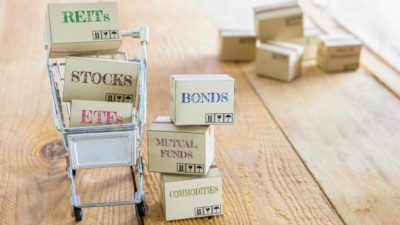The tax season officially began last month, and millions of Canadians will now have to file their returns for 2020. The last year has been a forgettable one for most of us, as the COVID-19 pandemic disrupted our personal and professional lives.
The Canadian government stepped in and provided multiple federal benefits to Canadians, as unemployment rates soared to record highs. It paid around $2,000/month to Canadians who were impacted by the pandemic for a period of 26 months. The Canada Revenue Agency then extended the benefit in the form of EI (employment insurance).
However, Canadians should note that these payments were in gross amounts, and the CRA did not withhold taxes at source. Taxpayers should understand that the benefits are taxable and need to be included as part of your net income when filing your taxes.
What’s the tax rate on your CERB?
In order to calculate the total tax on your CERB, you need to take a look at the total income earned in the last year. Let’s keep the calculation simple and assume you have only earned income via employment and the CERB in 2020.
So, for a resident of Ontario who has earned $50,000 last year via employment and an additional $8,000 via CERB payments, the total aggregate income amounts to $58,000. It means the resident will fall under two different federal and provincial tax brackets.
The federal tax rate on the first $48,535 is 15%, while the provincial tax rate for Ontario is 5.05% for the first $44,740. So, for the first $44,740 earned, the resident will be taxed at a rate of 20.05%, indicating a tax liability of $8,970.37. For the next $3,795, the federal tax stays at 15%, while the provincial tax increases to 9.15%. Here, you will have to pay $916.5 in taxes.
For the outstanding income of $9,465, the federal tax increases to 20.5% while the provincial tax is 9.15%. This indicates a marginal tax rate of 29.65%, indicating a tax liability of $2,806.37. So, the total taxes paid on an income of $58,000 is $12,693.24.
If you want to determine the total tax on your CERB, you need to consider the highest marginal tax rate of 29.65%. It also means you will pay $2,372 to the Canada Revenue Agency in taxes for the CERB payments that amounted to $8,000.
This is very simple way to calculate your tax liability and does not factor in any tax credits such as the Basic Personal Amount or even your RRSP contributions.
Earn tax-free income from your TFSA
One way to generate tax-free income is by holding investments under your Tax-Free Savings Account (TFSA). Any income generated in this registered account in the form of dividends, capital gains, or interests are exempt from CRA taxes. This makes the TFSA an ideal account to hold dividend-paying, blue-chip stocks such as Fortis (TSX:FTS)(NYSE:FTS).
Fortis is a Dividend Aristocrat and has increased dividend payments for 46 consecutive years. It has a recession-proof business model, as the company’s rate-regulated utility assets generate a steady stream of cash flows, allowing it to increase dividend payments as well.
Fortis expects to increase dividends at an annual rate of 6% through 2025. It expects to increase its rate base by $10 billion in the next five years, which will allow it to improve cash flows and increase payouts in the future.
Fortis stock is currently trading at a price of $49.94, indicating a forward yield of 4.04%. Analysts tracking the company have a 12-month average trading price of $58.69, which is 17.5% above its current trading price. After accounting for its tasty dividend yield, total annual returns can grow to 22%.








